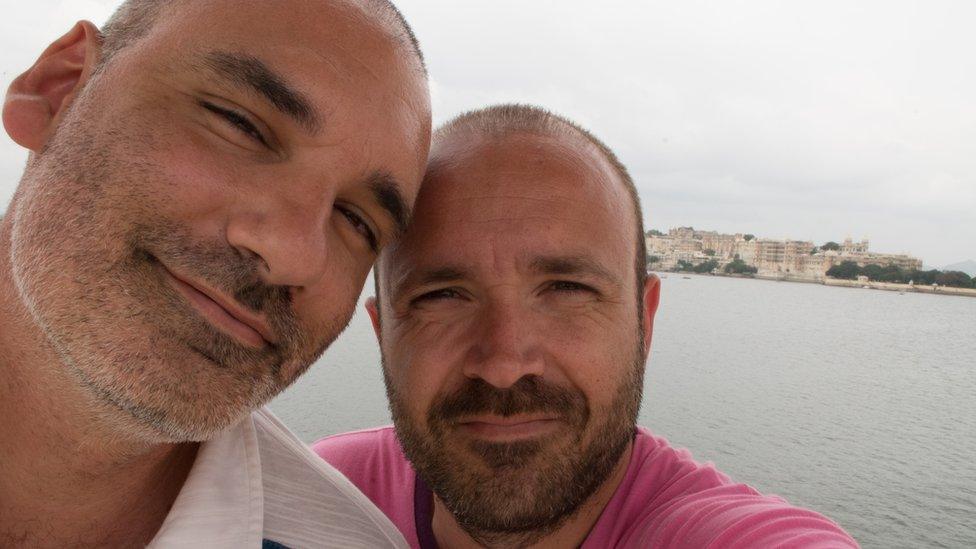Gay Germans' joy mixed with adoption angst
- Published
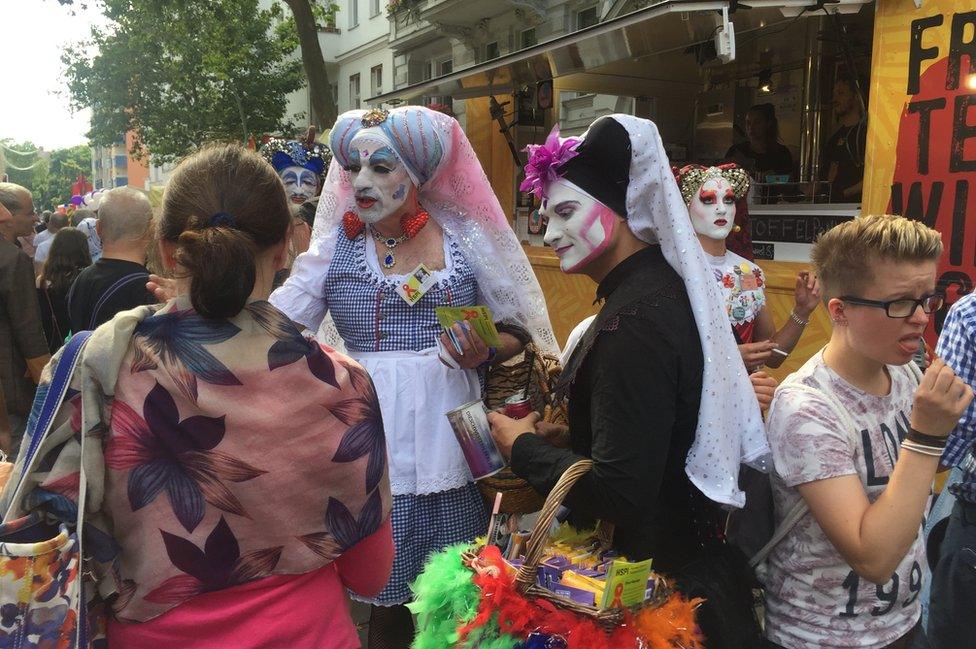
Drag queens wear striking costumes in Berlin's gay street festival
Gay Pride Berlin is a riot of glitter, glam and rainbow flags.
This weekend people will celebrate Germany's new law to allow equal marriage. But it is not necessarily "equal" for gay parents.
Berlin drag kings wax their moustaches, the queens dust off their biggest beehives and huge rainbow flags adorn government ministries.
This year Berlin's gay festival season has an unusually political edge.
President Frank-Walter Steinmeier signed the new equal marriage law on Thursday, meaning that same-sex couples should be able to get married from October. Until now only civil partnerships were available, which lacked some rights.

Justice Minister Heiko Maas tweeted: "A great day for more justice. Finally all get the same rights!"
Adoption worries
Jörg Hormann and his husband Patrick have been in a civil partnership for 9.5 years and have two young children. "We hope that now, finally, people will know that we are a completely normal family," said Jörg. "We're just happy that we're no longer seen as inferior."
I met Jörg and his family a few weeks ago at a demonstration outside the Bundesrat, Germany's upper house, as lawmakers formally voted on the measure.
Next to him stood a woman holding a placard saying "scrap homophobic adoption law". Journalists looked confused. "But I thought the new law sorts out adoption for gay people?" one asked her.
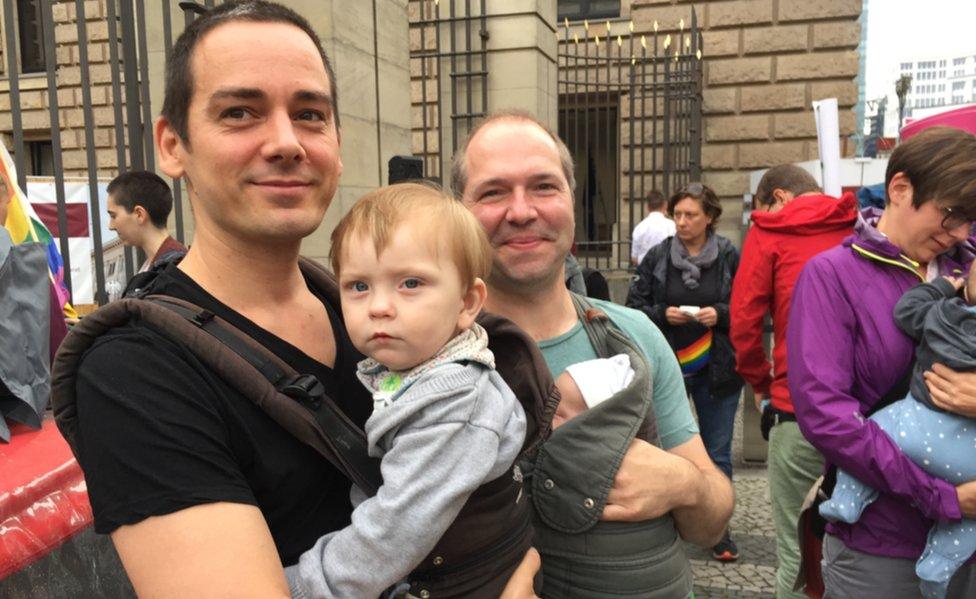
Jörg (L) and Patrick have two children and welcome the new law
In fact Germany's new equal marriage act allows gay couples to adopt. But it ignores the precarious situation of lesbian couples where one partner has a child.
"German laws have, until now, focused on bloodline," explained Constanze Körner from the LSVD, a gay rights group. It means that traditionally in Germany the legal definition of two parents is a mother and a father.
In heterosexual relationships, a man becomes the legal father by marrying the mother, or by simply recognising fatherhood.
For non-biological parents in same-sex relationships, however, the only possibility is a difficult and bureaucratic formal adoption procedure.
It is a process which some mothers describe as harrowing and intrusive, with gay parents having to justify their parenting to officials. It can take up to 18 months, so it can also be a period of uncertainty, a legal limbo in which the co-parent has no parental rights and the child is potentially vulnerable if the biological mother dies.
"We definitely need the possibility that things can be regulated legally before conception, whether there's a known father, or whether the child was conceived through a sperm bank, so that families and children are legally protected," said Ms Körner.
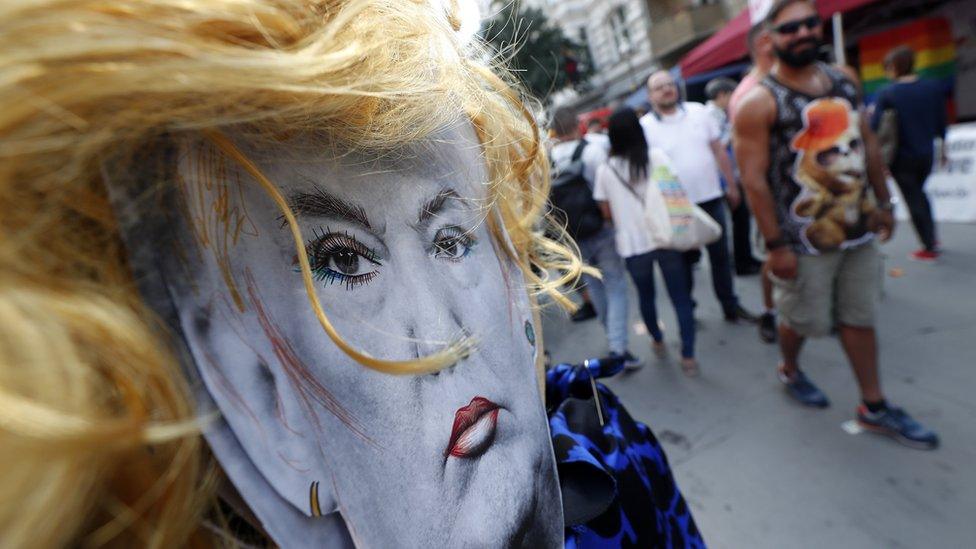
Berlin festival: One reveller posed as Donald Trump looking like a drag queen
Political tensions
The new equal marriage law took Germany by surprise. For years the issue had been blocked by Chancellor Angela Merkel's centre-right Christian Democrats (CDU), many of whom define marriage as between a man and a woman.
But attitudes in Germany have been shifting and, with elections coming in September, Mrs Merkel's rivals, the centre-left SPD, were hoping to turn gay marriage into a campaign issue.
In typical Merkel fashion, she outmanoeuvred them. She allowed parliament to vote on it, and for it to be a vote of conscience, knowing that this would guarantee the law passed.
But she kept her conservative party base happy by voting no. "Merkel's the only person in parliament who did not vote according to her conscience," one observer joked.
German MPs approve gay marriage
'My brother can marry his boyfriend'
Catholic Malta embraces gay marriage
The SPD is still keen to use the issue in the election, Berlin's SPD mayor Michael Müller told me.
"We managed to push this through against the will of the CDU. How Merkel behaved baffled many people. It's clear that it was a pure election tactic, and voters always take such things badly."
Not according to some of those at the annual Lesbian and Gay Festival near Nollendorfplatz last weekend.
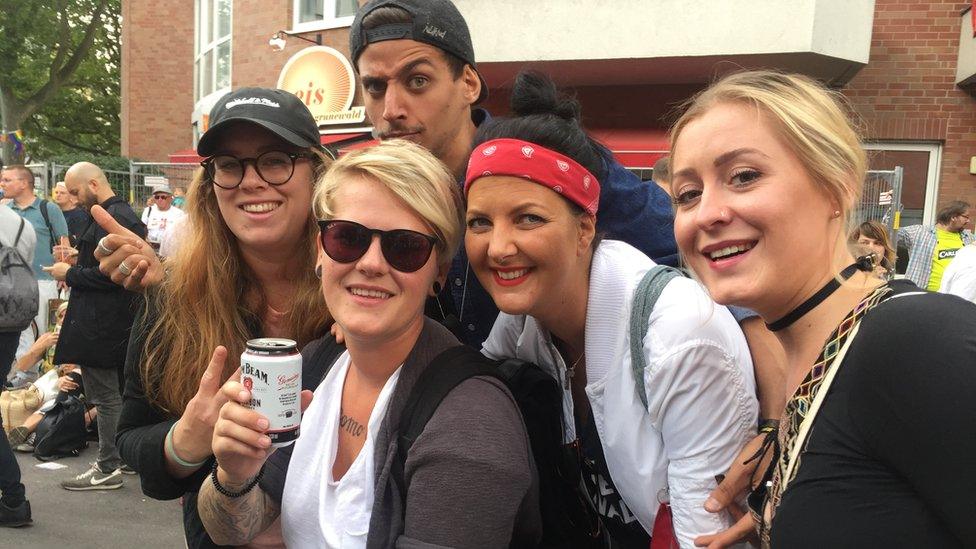
For Larissa (in dark glasses) and her friends the new law was cause for celebration
Larissa has just got engaged to her girlfriend, and although she is not a Merkel fan, she is just happy that she can now get married.
"Merkel was the one who enabled this to be a vote of conscience. She has her opinion, and I can tolerate that. But she still allowed it to happen, so for me that's a positive thing."
Do one thing, while simultaneously also doing the exact opposite - that is often how Chancellor Merkel operates. And on equal marriage she has wriggled out of a potentially explosive election issue.
But for many gay parents the fight continues.
- Published30 June 2017
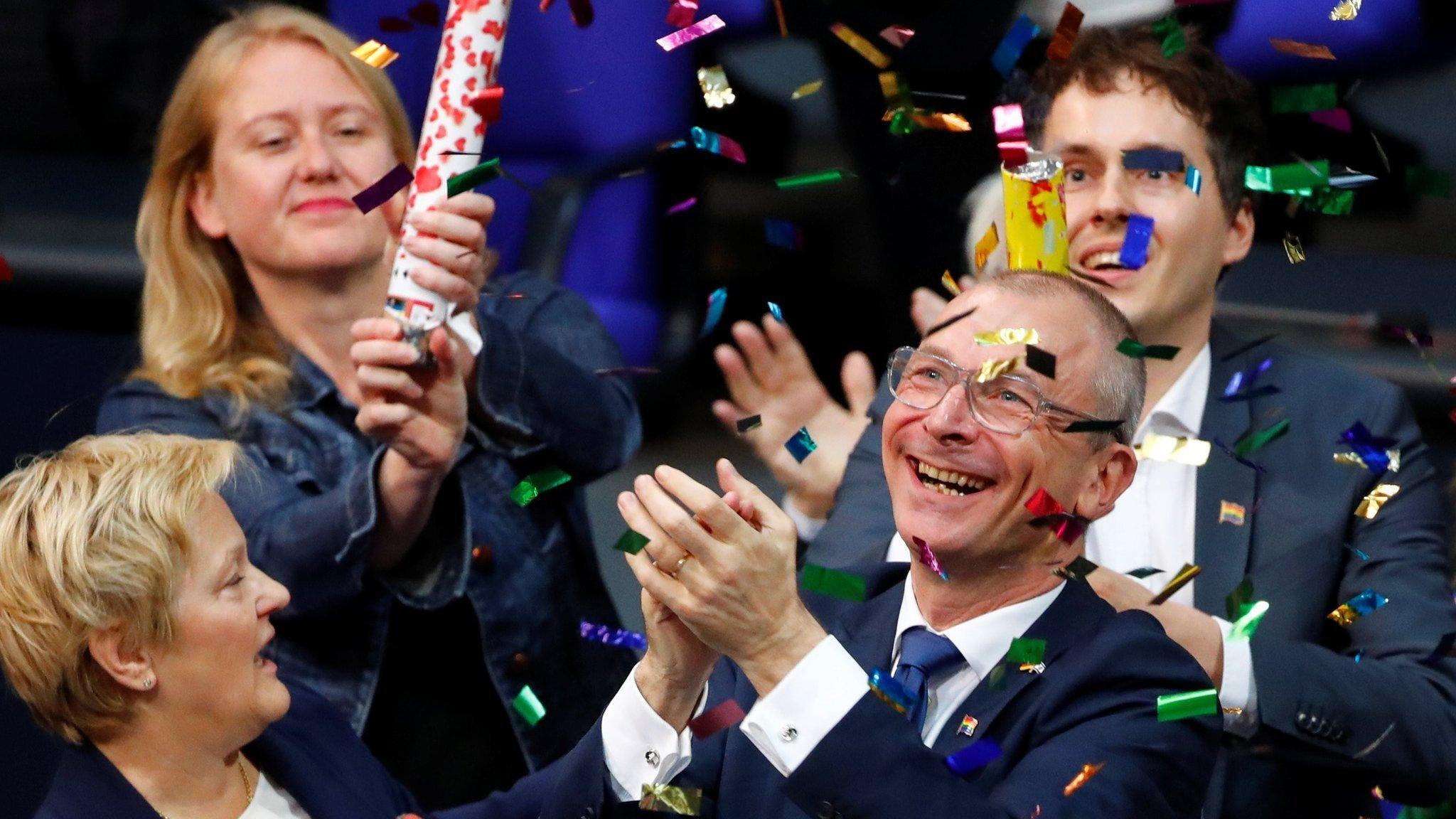
- Published30 June 2017
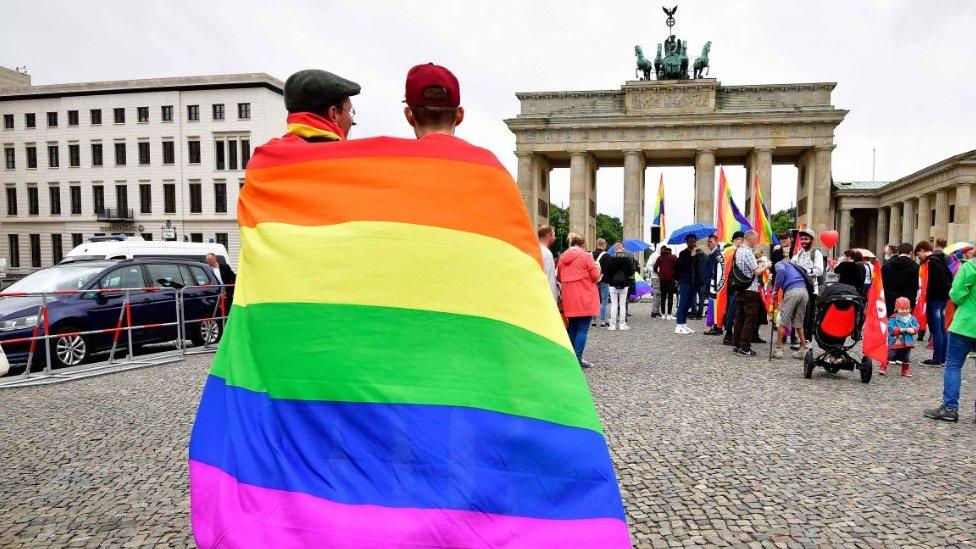
- Published3 July 2017
